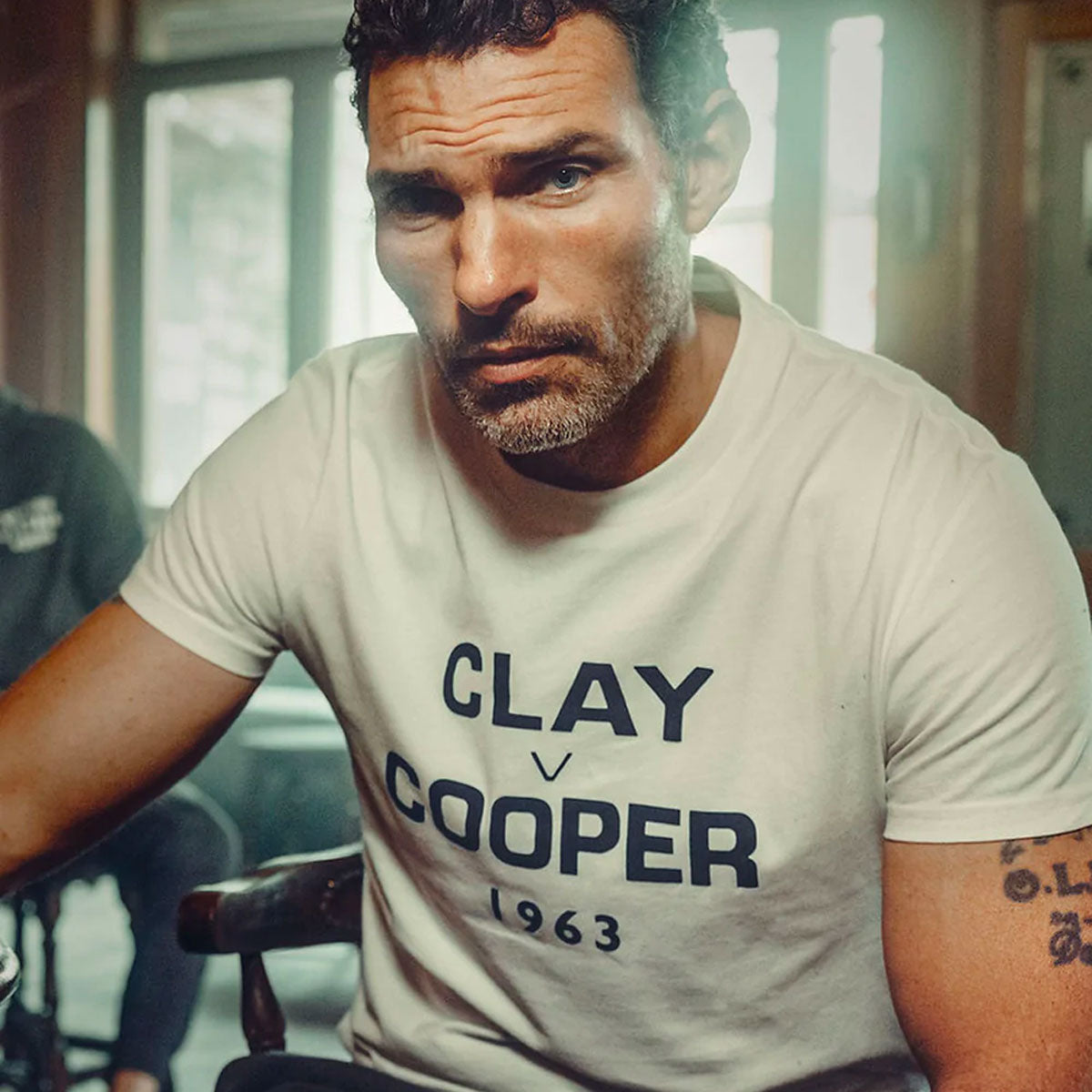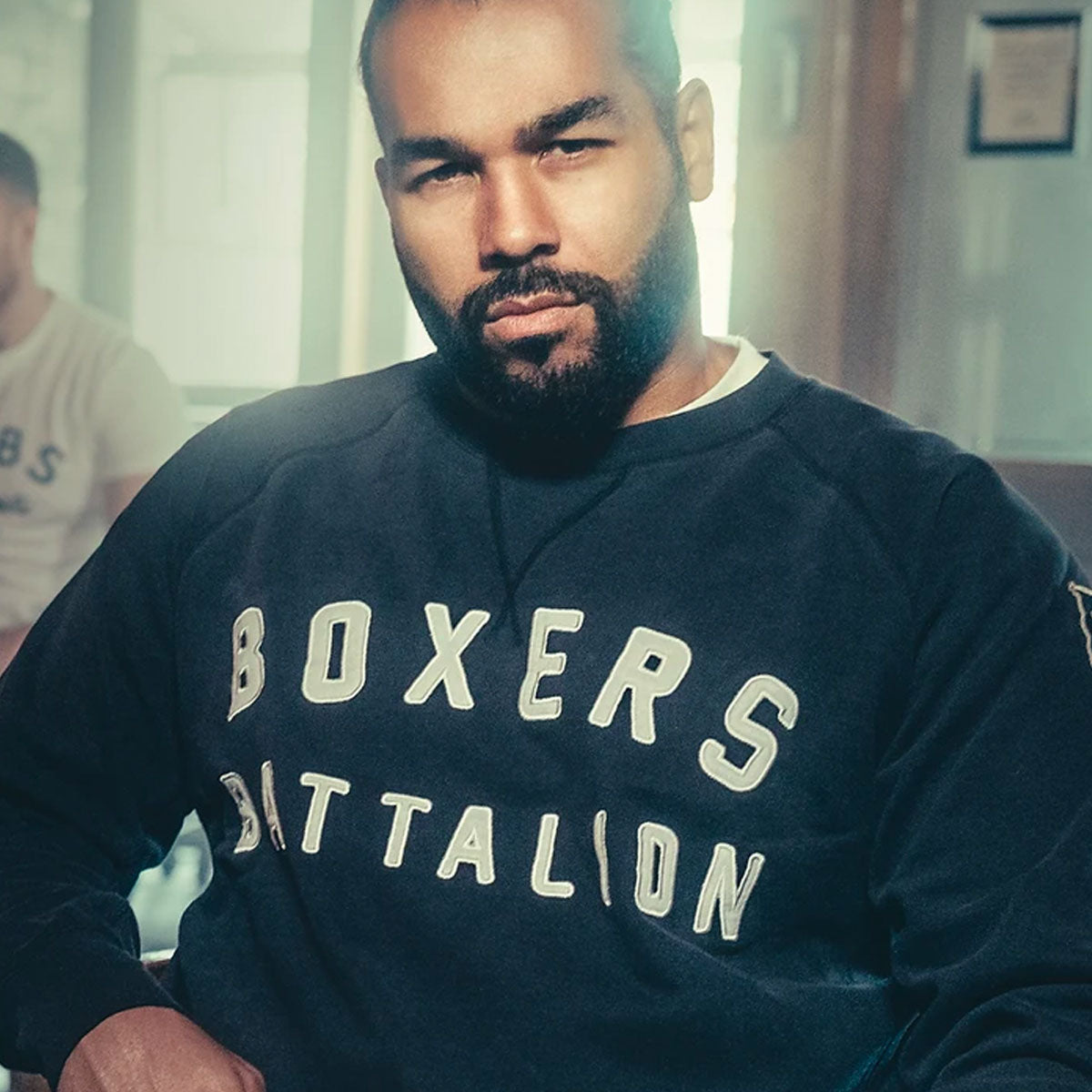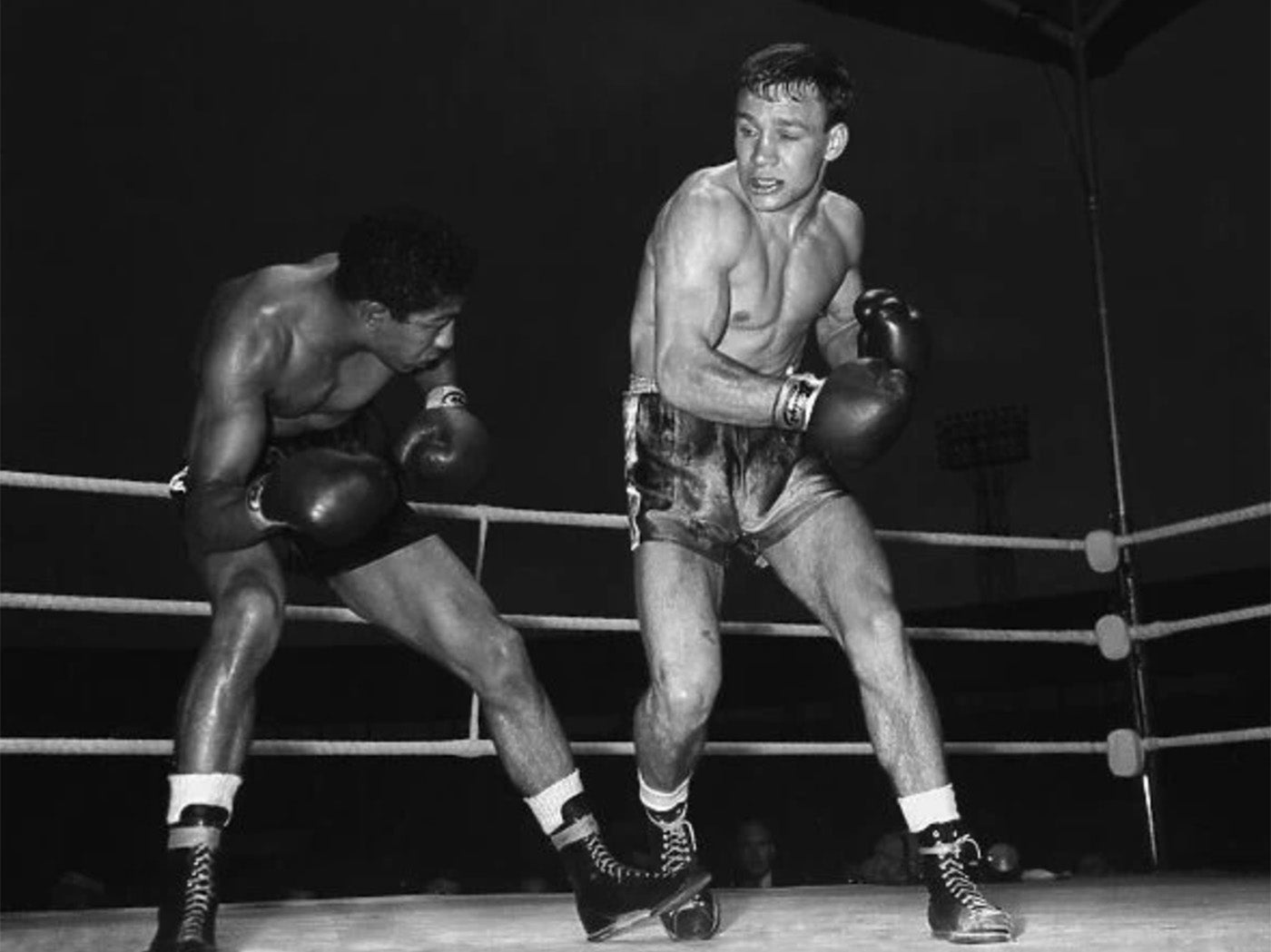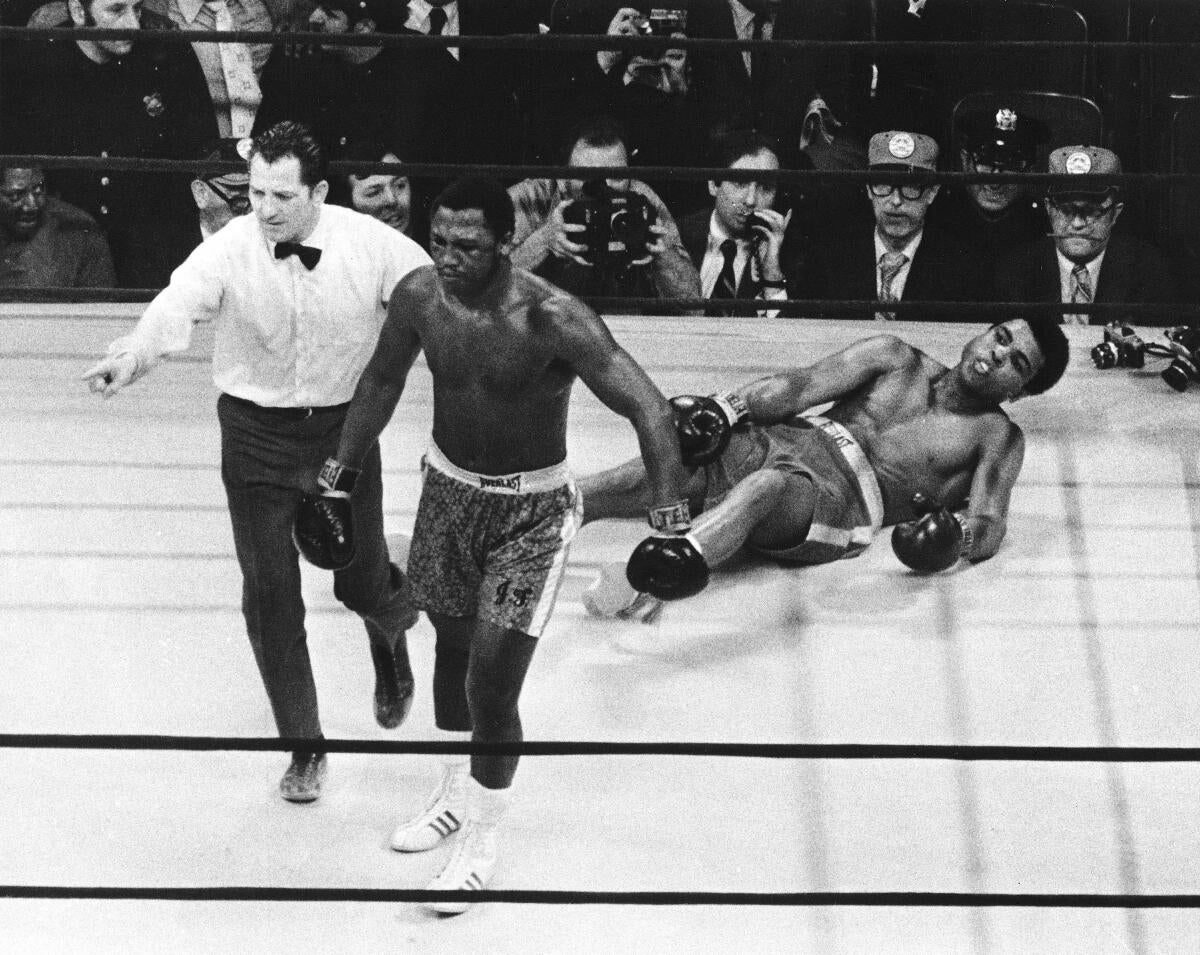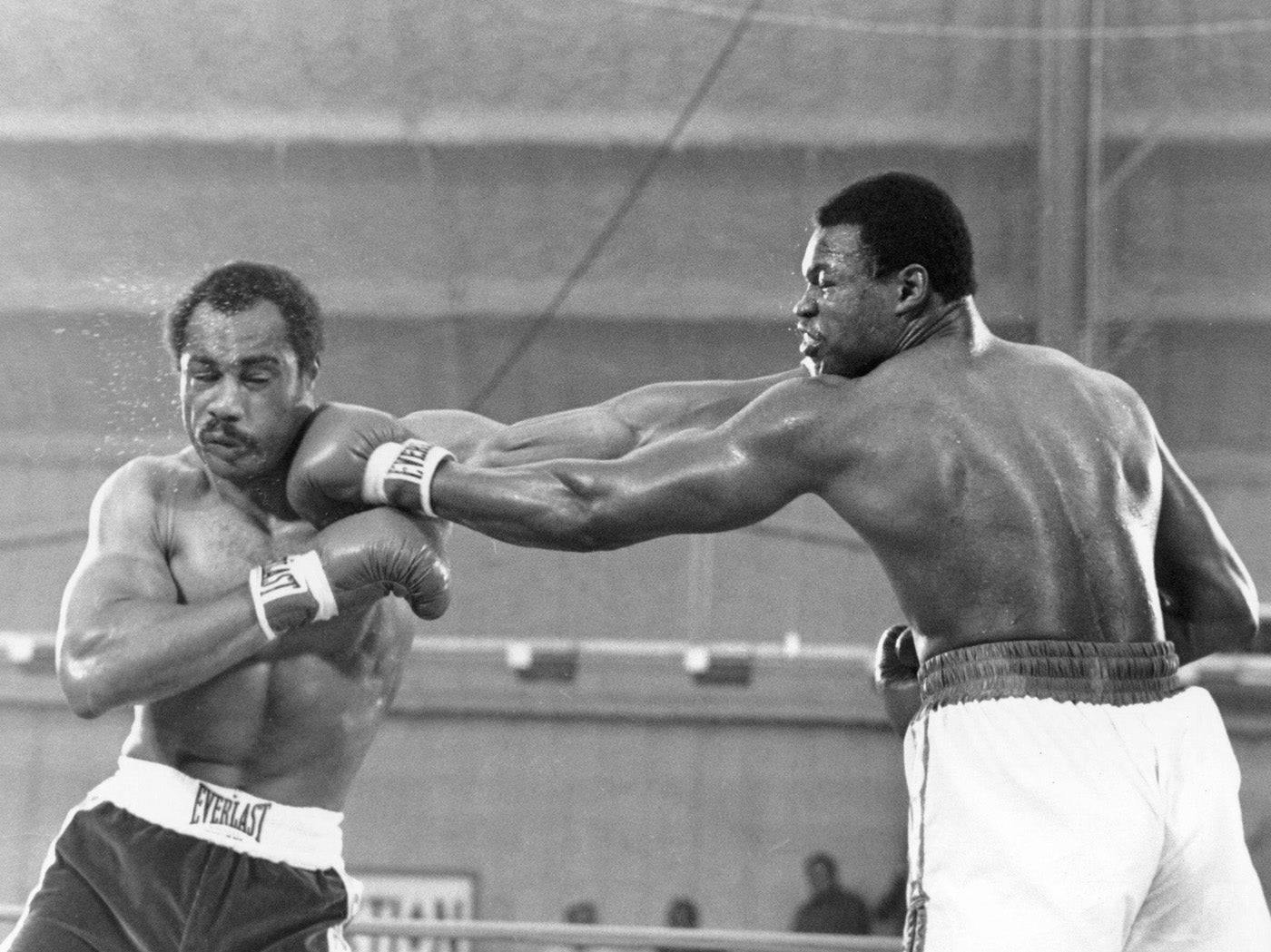‘One of Britain’s greatest boxers not to win a world crown.’ The Scotsman

David Fraser Charnley was the son of Scottish parents who moved from Lanarkshire, Scotland to Dartford, Kent. Whilst cutting his teeth as a boilermaker for Vickers engineering company in Crayford, Kent, young Dave joined Dartford Amateur Boxing Club, where he won a junior ABA title at 15, before progressing to Fitzroy Lodge.
In April 1954, Charnley beat future Olympic, Commonwealth and European gold medalist, Dick McTaggart in the first round at the national ABA’s, in the featherweight division. Four months later, between 3-7 August 1954, 18-year-old he represented England at the Commonwealth Games in Vancouver as a featherweight, stopping Gil Durey from Australia in the quarter final. Unfortunately, the young gun lost on points in the semi-final against the eventual gold medalist, Leonard Leisching. Charnley did however secure the bronze medal, which gave him a hero’s welcome to his native Dartford on his return.
Three months after securing his position on the podium, southpaw Charnley made his pro debut on 19 October 1954 at the Harringay Arena, against Martin Ames, who had a record of 17-10-3, a mere nine days after his nineteenth birthday. With both fighters weighing a fraction under 130lbs, Charnley took care of business by way of a third round stoppage.
By the end of 1955, Charnley’s record stood at 15 wins, one points loss and one draw. However, it was in 1956 he started to make his mark as a fully fledged lightweight, beating ranked, respected opposition. On 6 March 1956, Charnley stopped former Central Area lightweight champion, Johnny Butterworth in five rounds at the Regents Crest Hotel, Marylebone, then four weeks later beat former British featherweight champion, Sammy McCarthy on points at the Albert Hall. Stepney born, McCarthy was 40-5-1 at the time and was considered by the media to be a very respected scalp.
Charnley’s only loss of 1956 was on 27 August at the Maindy Stadium, Cardiff, against Welsh Area lightweight champion, Willie Lloyd, losing a points decision over 10 rounds. However, revenge was sweet for Charnley when the pair locked horns again on 22 January 1957 at the Royal Albert Hall, Kensington. Not only did he win the rematch, stopping the 44 fight veteran in the twelfth and final round, but the contest was also an eliminator for the British lightweight title. On 9 April 1957, Charnley challenged East Londoner, Joe Lucy for his British lightweight title, at the Harringay Arena. After 15 hard fought rounds, Charnley outpointed his fellow southpaw to be crowned British lightweight champion, a title he would retain for almost eight years.
Eight weeks later, Charnley stopped American, Johnny Gonsalves, before coming up against a very talented fighter in South African, Willie Toweel, the reigning Commonwealth lightweight champion. On 9 July 1957, Toweel, the 1952 Olympic bronze medalist who had only lost one in his 32 professional outings, proved to be too much for Charnley and retained his title on points at the Earls Court Empress Hall, Kensington. However, the chapter between the pair was not closed yet…
Over the next 15 months, Kent’s favourite fighting son fought eight times, incurring only one loss. His opposition was far stiffer and as such, his stock rose dramatically, as did his bank balance. Three fights after the Toweel loss, on 28 January 1958 at the Harringay Arena, Charnley took on Californian, Don Jordan at welterweight, walking away with a points victory. It’s worth noting that Jordan went on to win the world welterweight crown later that year and defended it a number of times.
Two fights later, Charnley stopped the former European welterweight champion, Peter Waterman (brother of actor, Dennis) in five rounds, in a non title-sanctioned fight. This was some achievement, as Waterman was the reigning British and Commonwealth welterweight champion and weighed a full 11lbs more than Dave.
Charnley’s last fight of 1958 was against, Carlos Ortiz, who boasted a record of 27 victories and only one loss. The Puerto Rican born future hall of famer proved to be too much for Charnley, clinching victory on points over 10 rounds at the Harringay Arena. Ortiz went on to win the world welterweight eight months later, defended it a few times, before dropping down to lightweight and becoming a long reigning prolific champion.
Despite losing his first fight of 1959 against Algerian born Frenchman, Guy Gracia, Charnley’s next fight on 12 May, proved fruitful, as he rematched old foe, Willie Toweel at the Empire Pool, Wembley. Since their last encounter, Toweel had gained a further 12 victories and only one loss, but more importantly, still held the Commonwealth lightweight strap. This time, Charnley didn’t leave the decision in the hands of the judges and knocked out Toweel in the tenth of 15 scheduled rounds, and in doing so became Commonwealth champion – a title he would hold on to for the next three years.
After two further victories, on 2 December 1959, Charnley fought for the ultimate prize against, taking on long reigning world lightweight champion, Joe ‘Old Bones’ Brown at the Sam Houston Coliseum, Texas. Despite putting on a brave show, Charnley’s right eye was badly cut and the contest was brought to a halt before the start of the sixth stanza.
 Charnley v Joe Brown weigh-in 1959
Charnley v Joe Brown weigh-in 1959
Not one to be disheartened, two months later Charnley returned to the ring to face the French lightweight champion, Sauveur Benamou at the Empire Pool, Wembley. After clinching a well deserved points victory over 10 rounds, five weeks later on 29 March 1960, Charnley stepped up again and took on the reigning European lightweight champion, Mario Vecchiatto, once again at the Empire Pool.
Despite a valiant attempt from the Italian to retain his strap, Charnley was simply too much for the Italian of Friulan roots, and stopped him in the tenth of 15 scheduled rounds. Charnley was now the European lightweight champion – a title he would defend multiple times over his three and a half year reign.
On 21 February 1961, now boasting a record of 37 victories, six defeats and one draw, Charnley defended his European title at the Streatham Ice Rink against a notoriously tough foe, the newly crowned French lightweight champion, Fernand Nollet. Despite the fight going the distance, after 15 rounds Charnley was unanimously the victor and still European champion.
Eight weeks later, Charnley fancied his chances again at world lightweight honours, rematching the existing champion Joe Brown at Earls Court Arena in front of an 18,000 strong crowd. This time round the Dartford Destroyer gave a great account of himself, narrowly falling short of victory on the scorecards, but providing those in attendance with a helluva show. So much so that Ring Magazine nominated the bout as their Fight of the Year for 1961.

Three months later, Charnley defended his European strap against Ray Nobile, in the Italian’s back garden, at the Plamino Stadium, Rome. At the time, Nobile had only lost once in 31 outings, but Charnley was too big and strong for the native Sicilian, forcing him to retire at the end of the fourth round.
After a decent points victory against American, Len Matthews, on 20 November 1961, Charnley fought Darkie Hughes at the Ice Rink, Nottingham, putting all three of his belts on the line against the Welshman. Unfortunately for Hughes, neither fighter broke a sweat as Charnley knocked Darkie out in 40 seconds, which at the time was a record time for the fastest knockout in a British championship fight. Not one to waste a good training camp, Charnley fought one week later, knocking out American LC Morgan in the third round, then nine weeks later beat Cuban, Jose Stable. Unfortunately for Charnley, his next fight, also against a Cuban (Douglas Vaillant), proved to be to much for him, as he was floored in the ninth and tenth rounds, losing overall on a points decision.
 Charnley v Doug Valliant 1962
Charnley v Doug Valliant 1962
Charnley’s three year Commonwealth lightweight reign came to an end in his next fight as he took on two-weight Jamaican champion, Bunny Grant in his native Kingston. After 15 action packed rounds, Charnley lost a wide points decision on all three judges scorecards.
Charnley clocked up four victories on the bounce, including a British title defence against Maurice Cullen and sixth round stoppage over old foe, Joe Brown in Manchester. Unfortunately for Charnley, the world title was not on the line on this occasion. Six months after the Cullen victory, Charnley suffered two back to back points defeats against Cuban, Tito Marshall and British and Commonwealth welterweight champion, Brian Curvis. Despite bouncing back with a points victory against Michigan based fighter, Kerry Lane, six months later Charnley took on long reigning world champion and hall of famer, Emile Griffith on 1 December 1964 at the Empire Pool, Wembley. Despite putting up a gutsy performance, Griffith was simply too good for Charnley and put him on the canvas multiple times during the fight, before the referee intervened in the ninth round to call the contest to a halt. With no intention of staying in the game to start his career as a journeyman, Charnley retired at the age of 29, with his health and his integrity intact, along with his bank balance. It’s also worth noting he was still the reigning British champion at the time of hanging up his gloves. His record stood at 48 wins, 12 defeats and one draw, but the content of those contests speak far louder volumes than the figures. In a 10 year professional boxing career, he won the British, Commonwealth and European lightweight titles, defended them multiple times and won the Lonsdale belt outright. Not to mention coming incredibly close to being crowned world champion.
As opposed to his ferocious fighting style in boxing, outside of the square ring he was a mild mannered, quiet and modest gentleman, void of trash talk, which certainly helped in terms of not squandering his money away like so many others blinded by the trappings of fame. Charnley wisely invested his money whilst actively boxing into a number of businesses, including a lucrative hair salon and property development, where he was rumoured to have built and sold around 500 properties.
Dave Charnley died on 3 March 2012 at the age of 76 and was widely considered to be one of the best 135lbs fighter Britain has ever produced. A tricky southpaw with plenty of zap to his punches and an aggressive style, made him a handful for any elite fighter and a crowd favourite to watch. To many he was known as the Dartford Destroyer, but to those who got to know him, he was fondly remembered as a great gentleman. Was he one of the nicest guys in boxing? Very possibly.
Paul Zanon, has had 11 books published, with almost all of them reaching the No1 Bestselling spot in their respective categories on Amazon. He has co-hosted boxing shows on Talk Sport, been a pundit on London Live, Boxnation and has contributed to a number of boxing publications, including, Boxing Monthly, The Ring, Daily Sport, Boxing News, Boxing Social, amongst other publications.

